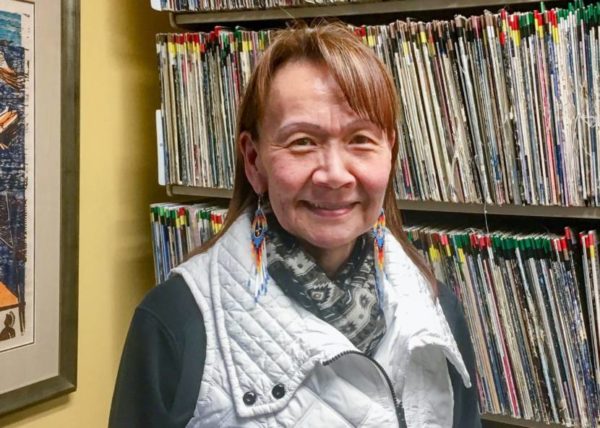
Viola Waghiyi of Savoonga is one of 26 members chosen for a new White House advisory council on environmental justice. She will give advice and recommendations on how to address current and historic environmental injustices across the U.S.
“It is an honor, not only as a Sivuqaq Yupik grandmother and Native Village of Savoonga tribal citizen, but as an Arctic Indigenous person who has been working on environmental health and justice issues going on 19 years,” Waghiyi said.
As the environmental health and justice program director at Alaska Community Action on Toxics, Waghiyi has advocated for environmental health on her native St. Lawrence Island. Since the end of the Cold War, her tribal community has been trying to hold the U.S. military accountable for toxic contamination from two Cold War bases.
Waghiyi said the council will be one way she’ll exercise her voice.
“[To] make sure that the priorities — including military toxic contamination and the persistent organic pollutants — are at the forefront with this administration,” she said. “These have resulted in health disparities never before seen in our people.”
Persistent organic pollutants have contaminated the food supply for subsistence diets. St. Lawrence Islanders are experiencing a range of related health issues, including cancer, due to pollutant contamination.
“Even though we don’t have manufacturers or chemical plants, we are finding (pollutants) in our backyards, in our lands and waters, in our bodies, and in our most sacred traditional foods that have sustained our people for millennia,” Waghiyi said.
But the Yupik people still feel the benefits of maintaining their traditional diet outweigh the risks, Waghiyi said.
Her appointment shows the federal government’s growing geopolitical interest in the Arctic. As different branches of the military have announced plans for operating in Alaska and the Arctic again, Waghiyi said a seat at the table in Washington is timely and important.
“It is so important because a lot of times we are never at the table when decisions are being made for us miles and miles away,” she said. “This will ensure that we have a voice at the White House.”
According to its website, the council was established to confront long-standing environmental injustices and to ensure historically marginalized and polluted communities have greater input on federal policies and decisions.
Council members will serve in a voluntary capacity, offering recommendations in a number of areas including climate change resilience, pollution and tribal and Indigenous issues.




